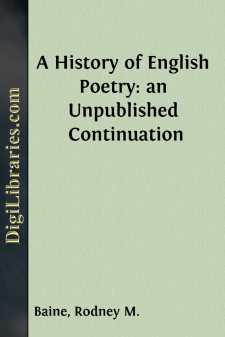Categories
- Antiques & Collectibles 13
- Architecture 36
- Art 48
- Bibles 22
- Biography & Autobiography 815
- Body, Mind & Spirit 144
- Business & Economics 28
- Children's Books 18
- Children's Fiction 14
- Computers 4
- Cooking 94
- Crafts & Hobbies 4
- Drama 346
- Education 58
- Family & Relationships 59
- Fiction 11834
- Games 19
- Gardening 17
- Health & Fitness 34
- History 1378
- House & Home 1
- Humor 147
- Juvenile Fiction 1873
- Juvenile Nonfiction 202
- Language Arts & Disciplines 89
- Law 16
- Literary Collections 686
- Literary Criticism 179
- Mathematics 13
- Medical 41
- Music 40
- Nature 179
- Non-Classifiable 1768
- Performing Arts 7
- Periodicals 1453
- Philosophy 65
- Photography 2
- Poetry 896
- Political Science 203
- Psychology 44
- Reference 154
- Religion 515
- Science 126
- Self-Help 85
- Social Science 83
- Sports & Recreation 34
- Study Aids 3
- Technology & Engineering 59
- Transportation 23
- Travel 463
- True Crime 29
Our website is made possible by displaying online advertisements to our visitors.
Please consider supporting us by disabling your ad blocker.
A History of English Poetry: an Unpublished Continuation
by: Rodney M. Baine
Description:
Excerpt
INTRODUCTION
Among the unpublished papers of Thomas and Joseph Warton at Winchester College the most interesting and important item is undoubtedly a continuation of Thomas Warton's History of English Poetry. This continuation completes briefly the analysis of Elizabethan satire and discusses the Elizabethan sonnet. The discussion offers material of interest particularly for the bibliographer and the literary historian. The bibliographer, for example, will be intrigued by a statement of Thomas Warton that he had examined a copy of the Sonnets published in 1599—a decade before the accepted date of the first edition. The literary historian will be interested in, inter alia, unpublished information concerning the university career of Samuel Daniel and in the theory that Shakespeare's sonnets should be interpreted as if addressed by a woman to her lover.
Critically appraised, Warton's treatment of the Elizabethan sonnet seems skimpy. To dismiss the sonnet in one third the amount of space devoted to Joseph Hall's Virgidemiarum seems to betray a want of proportion. Perhaps even more damaging may seem the fact that Warton failed to mention more sonnet collections than he discussed. About twenty years later, in 1802, Joseph Ritson listed in his Bibliographia Poetica the sonnet collections of Barnaby Barnes, Thomas Lodge, William Percy, and John Soowthern—all evidently unknown to Warton. But Warton was not particularly slipshod in his researches. In his immediately preceding section, on Elizabethan satire, he had stopped at 1600; and in the continuation he deliberately omitted the sonnet collections published after that date. Thus, though he had earlier in the History (III, 264, n.) promised a discussion of Drayton, he omitted him here because his sonnets were continually being augmented until 1619. Two sixteenth century collections which Warton had mentioned earlier in the History (III, 402, n.) he failed to discuss here, William Smith's Chloris (1596) and Henry Lock's Sundry Christian Passions, contayned in two hundred Sonnets (1593). Concerning Lock he had quoted significantly (IV, 8-9) from The Return from Parnassus: "'Locke and Hudson, sleep you quiet shavers among the shavings of the press, and let your books lie in some old nook amongst old boots and shoes, so you may avoid my censure.'" A collection which certainly did not need to avoid censure was Sir Philip Sidney's Astrophel and Stella; and for Warton's total neglect of Sidney's sonnets it seems difficult to account, for in this section on the sonnet Sidney as a poet would have been most aptly discussed. The Astrophel and Stella was easily available in eighteenth-century editions of Sidney's works, and Warton admired the author. Both Thomas and Joseph Warton, however, venerated Sidney mainly for his Arcadia and his Apology for Poetry. For Joseph Warton, Sidney was the prime English exhibit of great writers who have not, he thought, "been able to express themselves with beauty and propriety in the fetters of verse." And Thomas Warton quoted evidently only once from Sidney's verse, and then only by way of England's Helicon. The omission of Sidney, then, is the glaring defect; of the dozen or so other Elizabethan sonnet collections which escaped Warton, most were absolutely or practically unknown, and none seem to have been available to him in the Bodleian or the British Museum....


